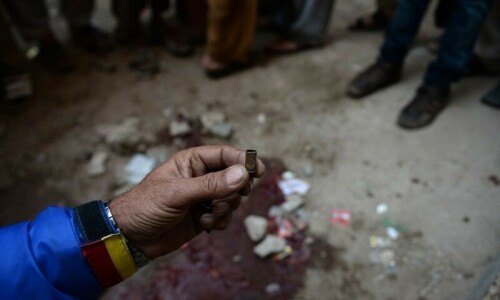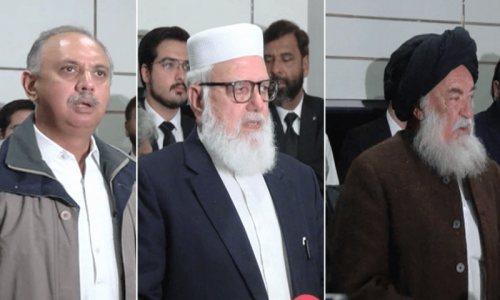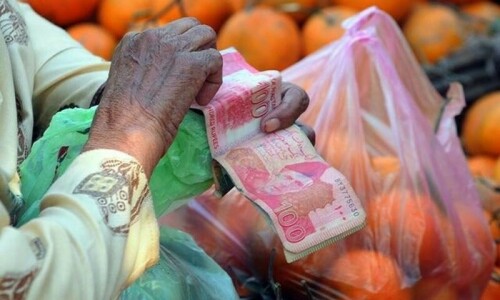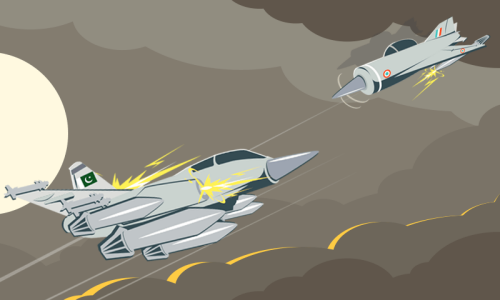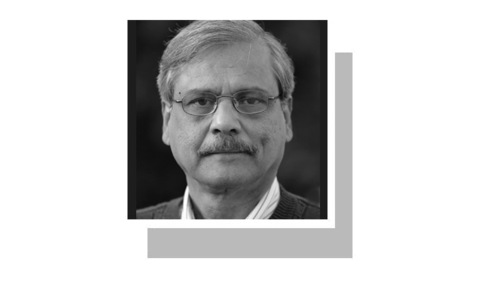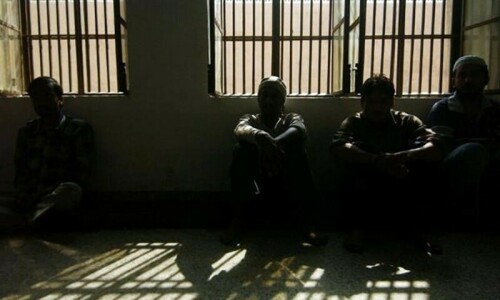Political violence is not new to Pakistan, but the events ensuing the arrest of Imran Khan upped the ante. In what many termed ‘a grave reaction,’ Pakistan Tehreek e Insaaf zealots also targeted markers of the military during the violent protests last week.
The business class believed that the total cumulative loss inflicted by the PTI protesters and the closure of mobile data service by the government last week may exceed the cost of turmoil following Benazir Bhutto’s murder. The total cost of mayhem in the last four days of the year 2007 was estimated to be Rs100 to 120 billion ($1.9-2.0bn when a dollar was at Rs61).
According to quoted media reports, this included Rs35bn in lost revenues, Rs64bn in production loss because of industry and shops closures, and the remainder was owing to damage to property and infrastructure such as motorbikes, cars, trucks, trawlers, petrol stations, bank branches, government offices and railway tracks.
It’s premature to assess or comment on the full scale of damage and its cost to the economy, but many believe the loss inflicted by angry mobs in multiple cities last week was more than ever before in two days of unrest.
Businesses can adjust in tough circumstances but abhor uncertainty
Besides the destruction of public/private vehicles and property, including railway tracks, business leaders confirmed that the closure of land trade routes in Balochistan and Khyber Pakhtunkhwa disrupted the outward movement of commercial vehicles and delayed the delivery of goods destined for Afghanistan and Central Asia.
It also affected the inward movement of commercial vehicles bringing consignments from Iran. The suspension of the mobile data by the government virtually paralysed the digital economy that included wallet services and digital payment platforms. The shopping at online companies and virtual malls, online banking, delivery services, ride-hailing companies, etc., lost business, the value of which has yet to be assessed.
Businesses across the country were still counting losses at the time of writing this piece. The sentiments, however, were not uniform across provinces. The level of stress in business circles was higher in Punjab, KP and Balochistan compared to Sindh.
There were some isolated incidents in Karachi and other towns in Sindh that disrupted traffic flow for a while; some private schools in Karachi were closed for a day, exams were postponed, and bus service was suspended, but generally, people went about their business normally. In other provinces, normalcy returned only after Imran Khan was released.
Talking over the phone from Lahore, former president Federation of Pakistan Chamber of Commerce and Industry (FPCCI), Mian Anjum Nisar, sounded depressed. He lamented what he termed ‘a dangerous situation’. He mentioned a daunting blow to already low business confidence. “People in our circles have started discussing overseas investment options. It’s sad as money that leaves hardly ever returns”.
“Though unlike earlier, the violent mob was not targeting businesses this time, but who knows where mob attacks next time,” said an anxious businessman too scared to share his opinion.
“It’s more than what stressed businesses and distressed families can endure. Mark my words, wholesale bankruptcies and bank defaults, and food riots are just a matter of time. You can close a factory, retrench workers, shut electricity to cut losses but can’t stop banks from ticking,” said another factory owner referring to loan repayment reminders by banks.
Engr Daroo Khan Achakzai, former president of FPCCI, sounded dejected talking over the phone from Quetta. “There is no justification for brutal rioting incited for political ends by a party playing victim when the real victims are impoverished people of Balochistan paying more than others even for basic food items like wheat flour and sugar”.
He found it absurd to draw a parallel and compare public outbursts against the assassination of Benazir Bhutto to rioting over the legal arrest of Imran Khan. “Benazir’s murder was a national tragedy, and the reaction was natural. If anything, the PPP played a key role in containing the violence just after it lost its leader, whereas the PTI incited senseless violence, crippling an already battered economy,” he said. He demanded focus on the economy.
Arif Habib, a tycoon from Karachi, expressed concern but was hopeful. He thought the worst was over. He believed that the recovery will start the moment government announces the date for the national elections.
“Business can adjust in tough circumstances but abhors uncertainty. Share the dateline of the next six months and stick to it. Businesses will start building back,” he advised the government and the PTI.
Zubair Tufail, also a former FPCCI president, says the economy is moving slowly but steadily despite challenges. Sharing his own experience in this regard, he said: “we operate on 30 days credit, and I am receiving all payments from all our clients across Pakistan dot on time,” he said.
Published in Dawn, The Business and Finance Weekly, May 15th, 2023


















